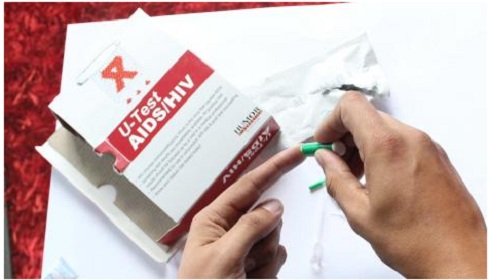
India ready for HIV self-testing after study finds high community acceptance
India is ready to launch HIV self-testing (HIVST), a rapid antibody test that can be done at home or a private location because it is acceptable to key populations, including sex workers, transgender populations, and drug abusers who use needles and imprisoned people, reports of Unitaid-funded STAR Initiative revealed.
Under the initiative, between September 2021 and June 2022, 93 380 HIVST kits were distributed in 50 districts across 14 States, using five different service delivery models, including community-based, private practitioner, community pharmacy, workplace and virtual models using both oral-fluid and blood-based kits.
The initiative discovered that communities reported that HIVST is convenient and easy to use, indicating that it was feasible to implement the intervention, which resulted in identifying previously undiagnosed HIV infections.
| - African leaders pledge to end HIV in children by 2030 |
| - UNAIDS warns of millions of AIDS-related deaths |
| - Ending gender-based violence must for curtailing new HIV infections: Researchers |
“Communities are very interested in this technology and demand continued availability of HIVST in the country,” she added.
“A systematic approach has been adopted to ensure that evidence generated translates into policy development and implementation,” Dr Po-Lin Chan, Team Lead of Communicable Diseases, WHO India Country Office, said.
“India has now extensive experience implementing HIVST, and it is time to scale up this service in the country,” he added.
It may be noted that the UN Health agency provided technical support to the project across three levels (headquarters, regional and country offices) throughout the design and implementation.
Given the promising results and experiences of the STAR Initiative, India, which is among the countries yet to develop a national policy on HIVST, now plans to introduce HIVST as an HIV testing approach among key populations and their partners.
According to Dr Shobini Rajan, Deputy Director General, National AIDS Control Organisation, India (NACO), which has been at the forefront since the inception of the STAR Initiative and has provided strategic leadership throughout the design and implementation, communities have been at the centre of coordination, implementation and monitoring of this initiative.
“The STAR Initiative has generated critical local evidence, and we are considering national policy development and implementation in the light of this evidence,” she said.